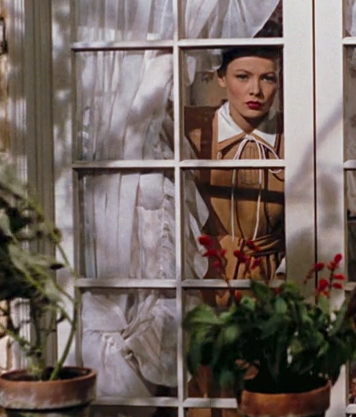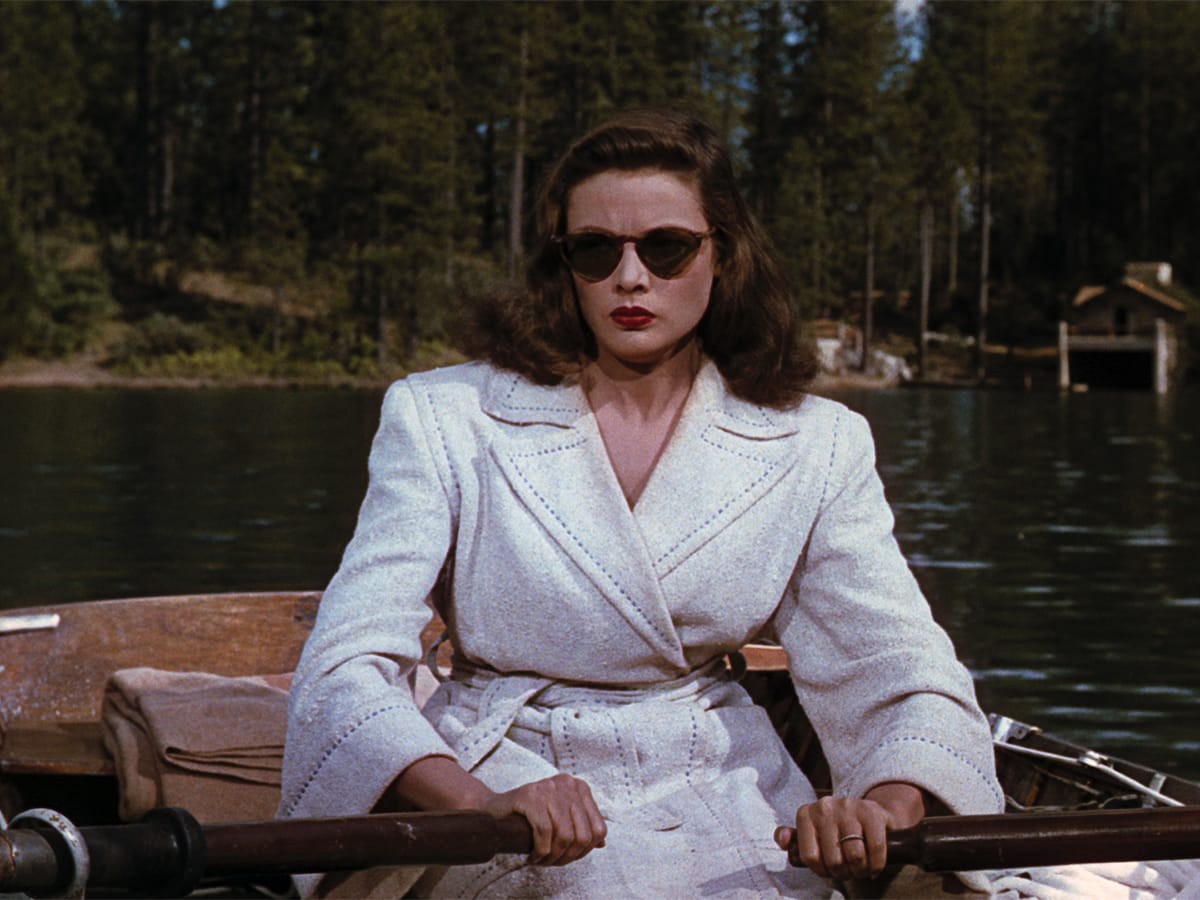The Furniture: Ellen Revolts Against the Upholstery in Leave Her to Heaven
 Wednesday, December 23, 2020 at 6:45PM
Wednesday, December 23, 2020 at 6:45PM "The Furniture," by Daniel Walber. (Click on the images for magnified detail)
 This week marks the 75th anniversary of Leave Her to Heaven, a technicolor noir blockbuster with set decoration so opulent, you will find yourself shouting at the upholstery.
This week marks the 75th anniversary of Leave Her to Heaven, a technicolor noir blockbuster with set decoration so opulent, you will find yourself shouting at the upholstery.
It has other virtues, of course: Gene Tierney’s wickedly genre-shifting performance, Leon Shamroy’s shadow-wielding cinematography, Vincent Price’s height, etc. But the last time I watched it, I couldn’t take my eyes off the sets. The film takes place in a fever-dream of post-war prosperity before the fact, an endless parade of over-decorated vacation homes.
Frankly, it should have won the Oscar for Best Art Direction - Interior Decoration, Color...



